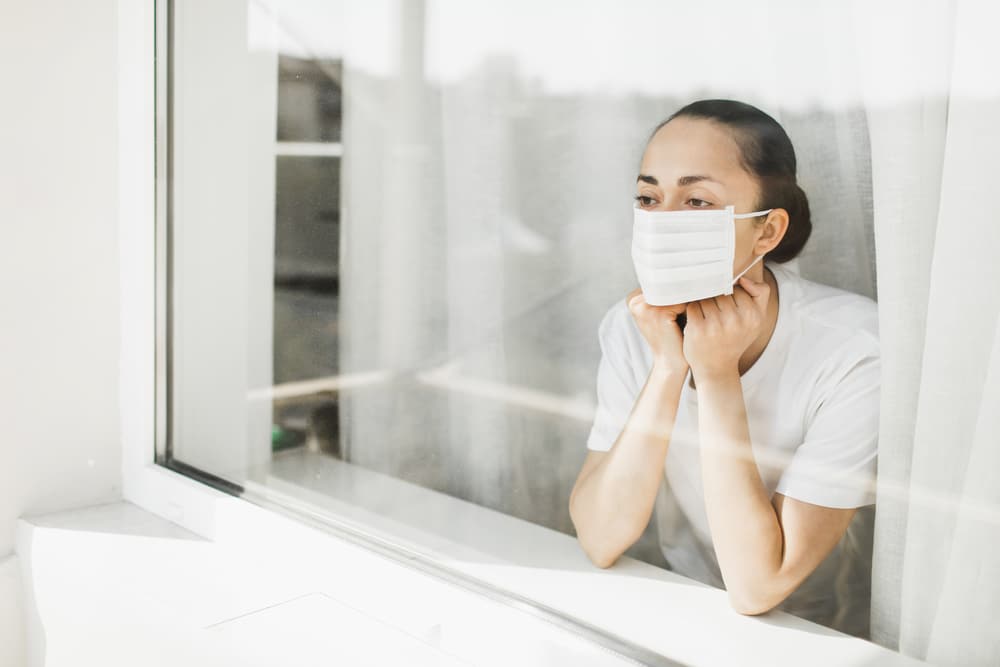By Staci Berkowitz, Ph.D.
We are now in the midst of a COVID-19 crisis. If you are a human on this planet right now, you have likely experienced any number of emotions that are normative reactions to crisis situations, including fear, anxiety, sadness, frustration, guilt, and/or anger. Emotions communicate important information to our body and brains. For instance, the emotion of anxiety is intended to communicate the potential for danger in our future while the emotion of sadness may communicate an experience of loss relative to what we have or want. The unfortunate reality of the current crisis is that there is a plethora of emotion-worthy information to be communicated. It is important to validate that emotions in the midst of the coronavirus crisis are normal.
Although it may not be possible to control emotions when they initially pop up, the good news is we do have an ability to influence how we respond after emotions are present. Furthermore, we can control the actions we take that have the potential to increase the likelihood of positive emotions and decrease the likelihood of prolonged negative emotions as we cope with this crisis.
As a clinician and a member of society, I have found there to be three major crisis-related mental health concerns we are speaking about most frequently: 1 – coping with uncertainty, 2 – processing grief or loss, and 3 – coping with negative emotions. To varying degrees, these topic areas relevant to all of us as we navigate the challenging realities of this crisis. Although there is much to say about each domain, this blog post focuses the current entry on the third, providing an overview of one strategy for becoming less vulnerable to negative emotions.
One of the challenges of living in quarantine is that, for many of us, regular sources of joy are not available and day-to-day tasks that that provide a sense of accomplishment are limited. Mental health clinicians have known for decades that (1) engaging in activities we inherently enjoy and (2) engaging in activities that give us a sense of mastery or accomplishment make us less vulnerable to intense negative emotions (and more likely to experience positive emotions). Given the sudden limitations on our day to day activities, we need to be A LOT more intentional and A LOT more creative about building these into our schedules.
Coming up with quarantine-friendly activities we can engage in that provide a sense of enjoyment and/or accomplishment can start simply. Whether it is taking a walk, reading a book, calling a friend, listening to a podcast, cooking a new recipe, or taking a warm bath, finding basic activities we find pleasant and incorporating them into our daily routines is worthwhile. Similarly, taking on tasks that may not be enjoyable in the moment, but are meaningful or rewarding because they are in line with a goal or provide a sense of accomplishment or purpose, is just as important. This may include exercise, working on crafts projects, caring for a loved one, putting away the dishes, or sorting through old emails.
It is important to consider even smaller actions as well. For instance, getting dressed, showering, and brushing your hair (tasks many of us were more accustomed to pre-quarantine) can provide a small “dose” of mastery or accomplishment, and the accumulation of enough of these experiences over time positively impacts our mood. Because many of our old routines are no longer viable, we need to build in new routines that provide these essential ingredients.
It is also important to acknowledge that for individuals experiencing increased sadness or depression, both common reactions to the current crisis, it becomes increasingly difficult to engage in many day-to-day activities. Withdrawing and isolating are natural responses to the experience of sadness. Importantly, beginning to incorporate activities that provide a sense of pleasure and accomplishment, however small they may be, can help us break out of the cycle of negative emotions. Lastly, as we all begin to create and refine our lockdown routines, it is important to acknowledge that we may simply not be as productive or as joyful during lockdown as we may have been before. That too is perfectly okay and expected. After all, we are living through a global crisis that will be a memorable part of world history! Finding a way to be compassionate towards ourselves and to recognize it is okay not to be our most productive or most ‘happy’ is perhaps one of the most mentally healthy things we can do.


Recent Comments